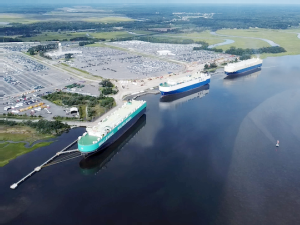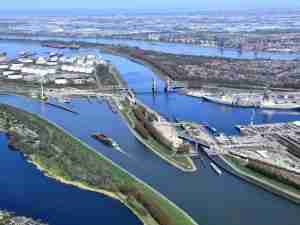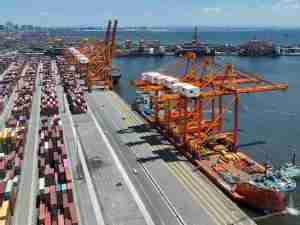Ports win OK to cooperate on congestion relief
posted by AJOT | Mar 01 2015 at 02:11 PM | Ports & Terminals
Federal regulators approve expanded working pact for Long Beach, L.A.
The ports of Long Beach and Los Angeles received federal approval Thursday to cooperate more vigorously on finding new ways to prevent congestion and cargo delays, improve the transportation network and enhance air quality.
The Federal Maritime Commission’s decision to grant the expanded agreement allows the ports to pursue joint projects that will strengthen the port complex’s ability to remove bottlenecks and move cargo faster and more efficiently.
“The ports and cities of Long Beach and Los Angeles both succeed when the other succeeds. My thanks to the Federal Maritime Commission and FMC Chairman Mario Cordero for allowing our ports to join forces to address congestion and cargo delays so these issues do not occur again,” said Long Beach Mayor Robert Garcia. “This port complex is too important for us not to do everything we can to improve it.”
Harbor commissions overseeing the neighboring ports in December requested the FMC to expand existing working agreements in an effort to find long-term solutions to the congestion that had slowed the movement of cargo shipped through Long Beach and Los Angeles in recent months.
While major ports around the globe are grappling with the same problems, the difficulties have been magnified at the United States’ busiest harbor complex, which handles nearly 40 percent of the nation’s cargo. Thanks to the tentative contract agreement reached Feb. 20 by longshore labor and management, the ports are working through the backlog of containers.
“With this discussion agreement, the ports of Long Beach and Los Angeles can now focus on working together to improve the speed of cargo flow throughout the supply chain. The ports are in a perfect position — and indeed have an obligation — to bring all industry stakeholders together to identify and implement continuous improvements that deliver world-class performance on a sustainable basis,” said Jon Slangerup, Port of Long Beach Chief Executive. “Will the two Ports still compete? Absolutely, but we can and will cooperate to make our San Pedro Bay gateway stronger and more competitive than ever.”
The newly expanded agreement specifies the two ports can exchange information on “projects” and “programs” in addition to rates, charges, operating costs, practices and regulations related to marine terminal, trucking, rail and vessel operations.










